When David Harrison joined diversified property group Charter Hall as joint managing director in 2004, the company had a small team of 10 operating out of Sydney, $300 million worth of assets under management, and no balance sheet.
The firm was 13 years young, having gone from an initial focus on advisory work in the commercial property space to eventually launching its first property syndicate by 1995 – the first of a series of high-quality single- and multi-asset property syndicates. David had just sold a national real estate business he had founded – having grown it to an 850-strong team – and he was ready for another business challenge.
The union laid out a new path for Charter Hall, and it was only six months after David began putting a portfolio together with the executive team that an IPO was produced, and Charter Hall was officially listed on the ASX in 2005. One year later, the company launched its flagship fund, the Prime Office Fund (CPOF) – the first in what would be a series of long-term, open-ended core investment vehicles.
“Creating something new is always exciting, and CPOF was our first large, unlisted, wholesale investment core fund,” says David. “We raised $500 million from equity commitments to launch it. To this day, I think it’s still the largest private blind equity raising in Australia’s history for any sort of wholesale property fund. It was the start of what is now a $20-billion core investment management business, 12 years on.”
Pooled funds and partnerships Charter Hall complemented its core pooled funds by creating core partnerships after the global financial crisis. The largest partnership, the Charter Hall Office Trust (CHOT), has grown to $2.5 billion. “The CHOT portfolio has just achieved the highest-ever annual return of 45% in FY2017,” says David, “an outstanding success both for our clients and for Charter Hall.”
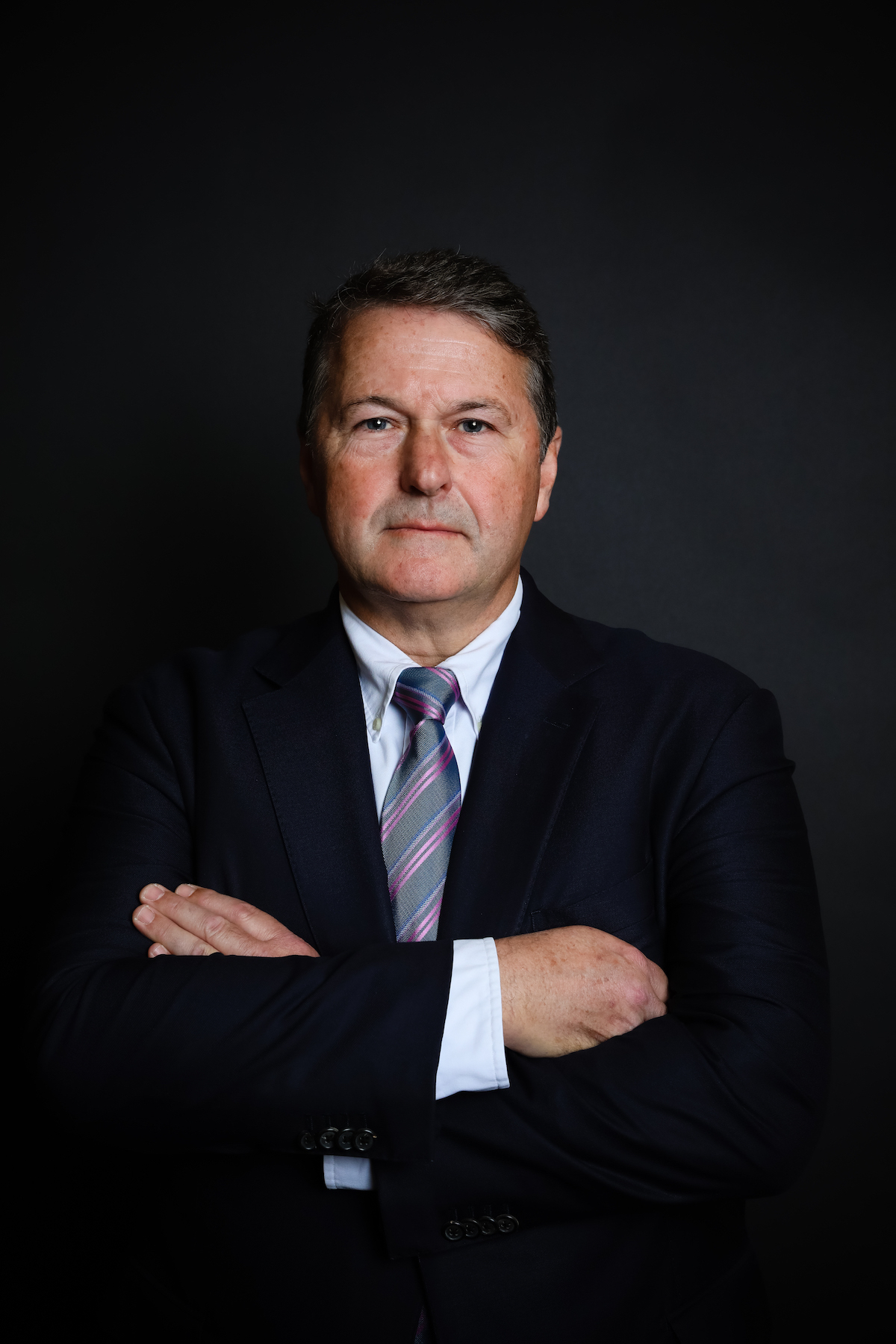
That’s what’s driven our growth model – providing a differentiated experience in everything we do.
By 2010, Charter Hall also experienced considerable transformation following its courageous acquisition of Macquarie Capital’s global real estate platform, which catapulted the business from about $3 billion worth of assets to $10 billion, raising its head count from 70 to 220, and expanding its market penetration.
Today, Charter Hall is an award-winning diversified investment manager and recognised industry leader that owns and manages 314 commercial properties around Australia, home to a high proportion of investment-grade or blue-chip tenants, ranging from government
to major corporates. Its strong brand awareness and industry relationships have also seen the company consistently form strong partnerships and raise robust equity, despite lulls in the market or additional economic challenges.
David says he hopes the rapid growth of Charter Hall can give hope to young executives that you can build great things from the ground up. “I think we really demonstrate that with vision and dedication you can create great companies,” he says. “We’ve grown to the size of AMP, GPT, and many of the bigger brands in the industry, and we’ve done it in a relatively short time, whereas most of those big names have been in the listed environment for 30 or 40 years. That’s a fantastic achievement for our whole team, and something of which I am personally very proud.”
I think we demonstrate that with vision and dedication you can create great companies.
As Charter Hall’s managing director and Group CEO, David is now responsible for all aspects of the business, with a specific focus on strategy and continuing this impressive growth momentum. Along with his 13 years at Charter Hall, David has accumulated 30 years of property market experience across the office, retail and industrial sectors. His solid industry know-how stems from his teenage years, when he became involved in buying and refurbishing houses at the age of 15.
“I grew up pretty immersed in the property industry, as my parents were real estate professionals. They had been in agency and development for 30 years, so I guess it was in my blood,” he explains. “I did a property economics degree here in Sydney, and then joined the workforce as a real estate valuer with Raine & Horne Commercial. Then I realised that I was more interested in capital markets and investment transactions, and moved into investment sales, while getting my graduate diploma in applied finance.”
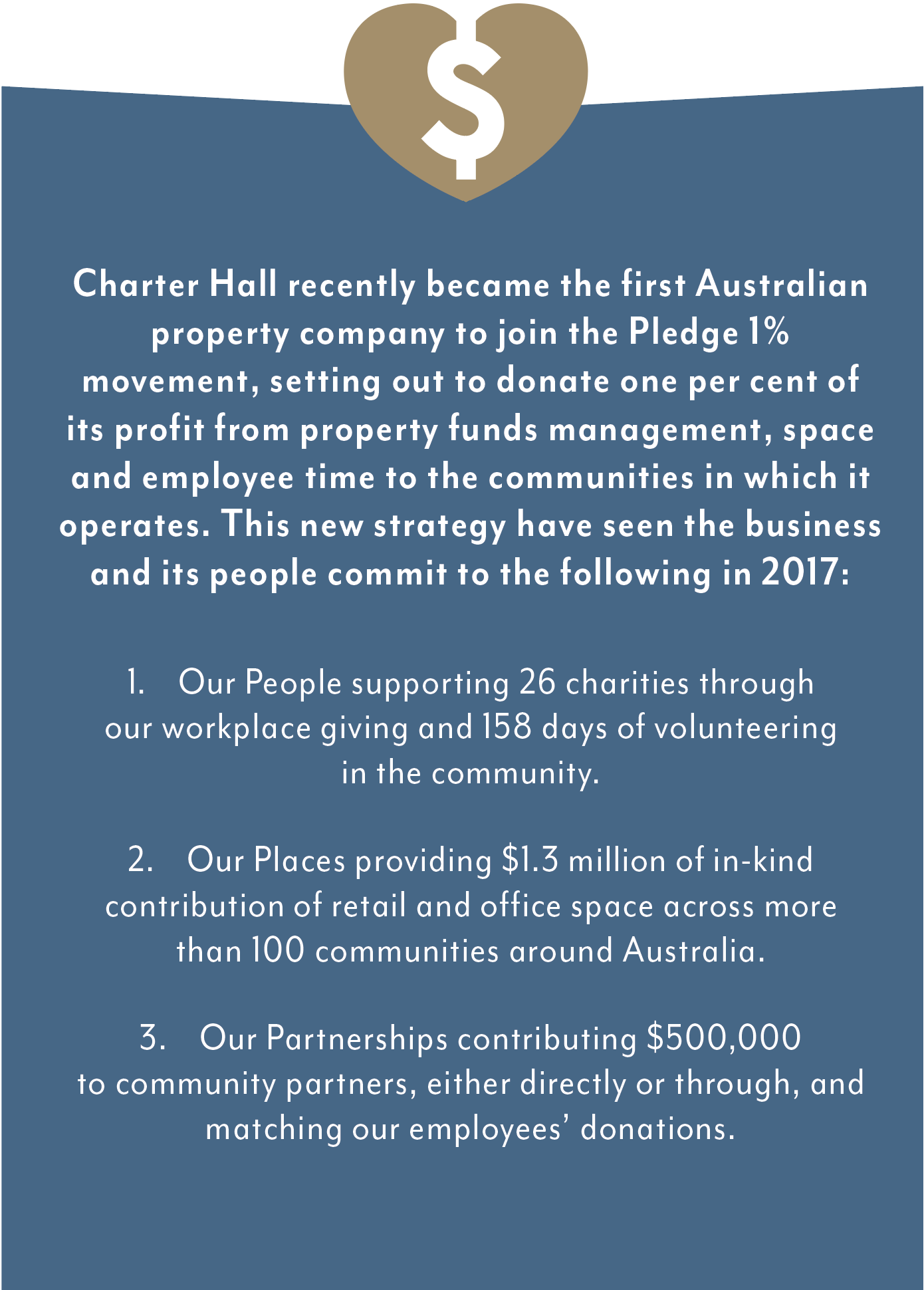
The entrepreneurial spirit was not far off. When he was 27, David teamed up with Asian real estate agency First Pacific to acquire the Raine & Horne Commercial business. In just over a decade, David had gone from buying and refurbishing properties to buying and refurbishing property businesses, seeing the underlying value within them.
“That company went through various mechanisms, but we bought it and transformed it into a whole new brand – First Pacific Davies – which we then sold to Savills in 2001,” he says. “I left there in 2003, having grown the business as managing director since we bought it out in 1994. From there, I joined Charter Hall, and the rest is history.”
When David took over as Group CEO of Charter Hall in 2016, it was clear that he was well placed to lead the business, considering his extensive property and business transformation experience, his solid relationships with customers, and proven track record of overseeing the Group’s significant growth.
Moving forward, David will continue to enhance every level of the property value chain as the business looks to capitalise on its market-leading positions and embark on its next phase of growth. “We’re working on securing new growth opportunities, further developing relationships with our investor and tenant customers, enhancing the operational performance of our 300-plus property portfolio, and continuing the great work in developing our culture and our people,” says David.
Industry veteran
When he helped create the vision for being both a listed company and a large investment manager, David specified that the purpose was to provide a differentiated experience for customers. “I’d been in the industry a long time and I didn’t think there was much differentiation between existing providers. We wanted to provide an experience that focused on producing the best outcomes for our investor and tenant customers,” David adds.
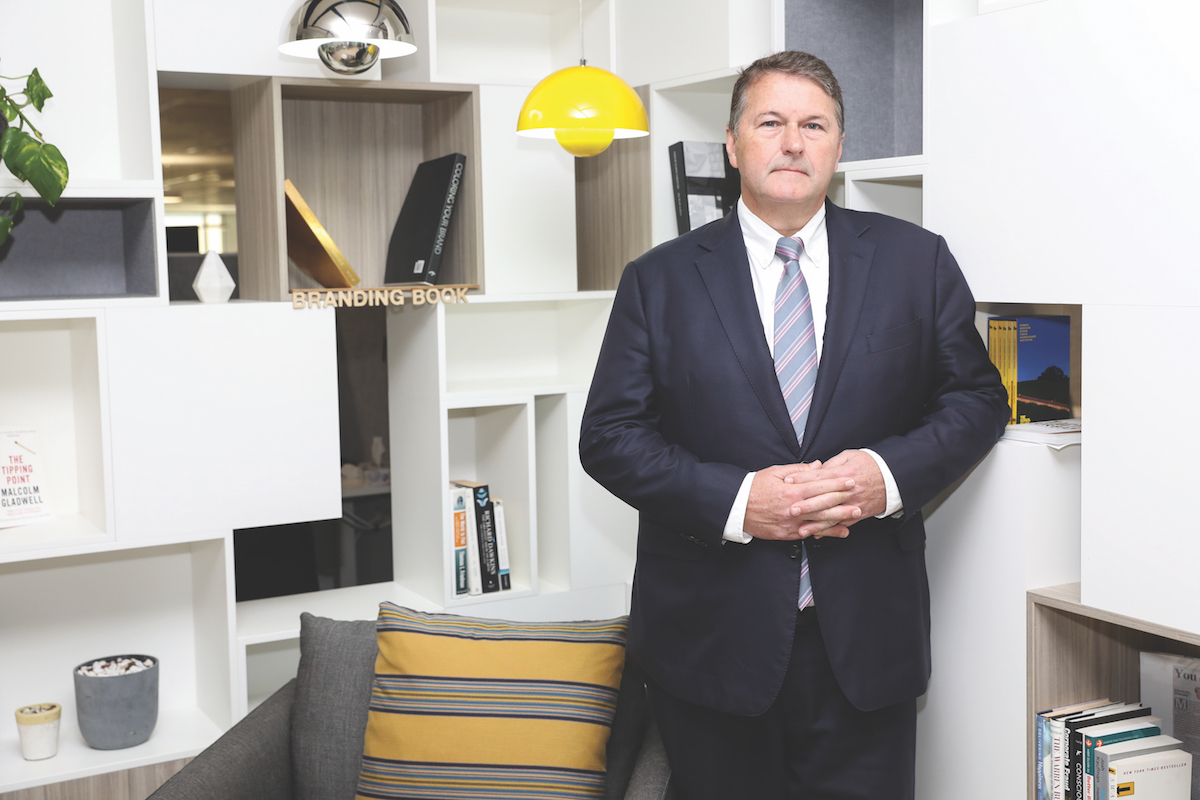
“That’s what has driven our growth model – providing a differentiated experience in everything we do, whether it’s how we manage the relationships with tenants and investors or how we manage physical assets and investments. We want to not only produce sustainable returns for our investors, but also positive experiences for our tenants and the community. That’s the philosophy behind our success.”
This success is not slowing, with the Group announcing in April this year an upgraded earnings guidance to 35.9 cents per security, representing an 18% increase in post-tax operating earnings per security (OEPS) from FY16. The upgrade identified a new five-year interim performance fee, expected to deliver an additional $10 million of pre-tax revenue.
At the same time, Charter Hall undertook a $275-million fully underwritten institutional placement to help fund $333 million worth of identified co-investments with capital partners. Charter Hall was also awarded the Professional Planner/Zenith Fund Award for Direct Property in October last year, in recognition of its market-leading Direct Office Fund (DOF).
Investment in real assets
Charter Hall is also renowned for being a property manager with one of the longest weighted average lease-term expiries (WALEs) in the sector, with long-term leases minimising the risk of vacancies and generating consistent cashflows. “Last year, we did an IPO for a diversified long WALE REIT, which saw the largest external equity raising achievement for a property IPO in 10 years,” says David.
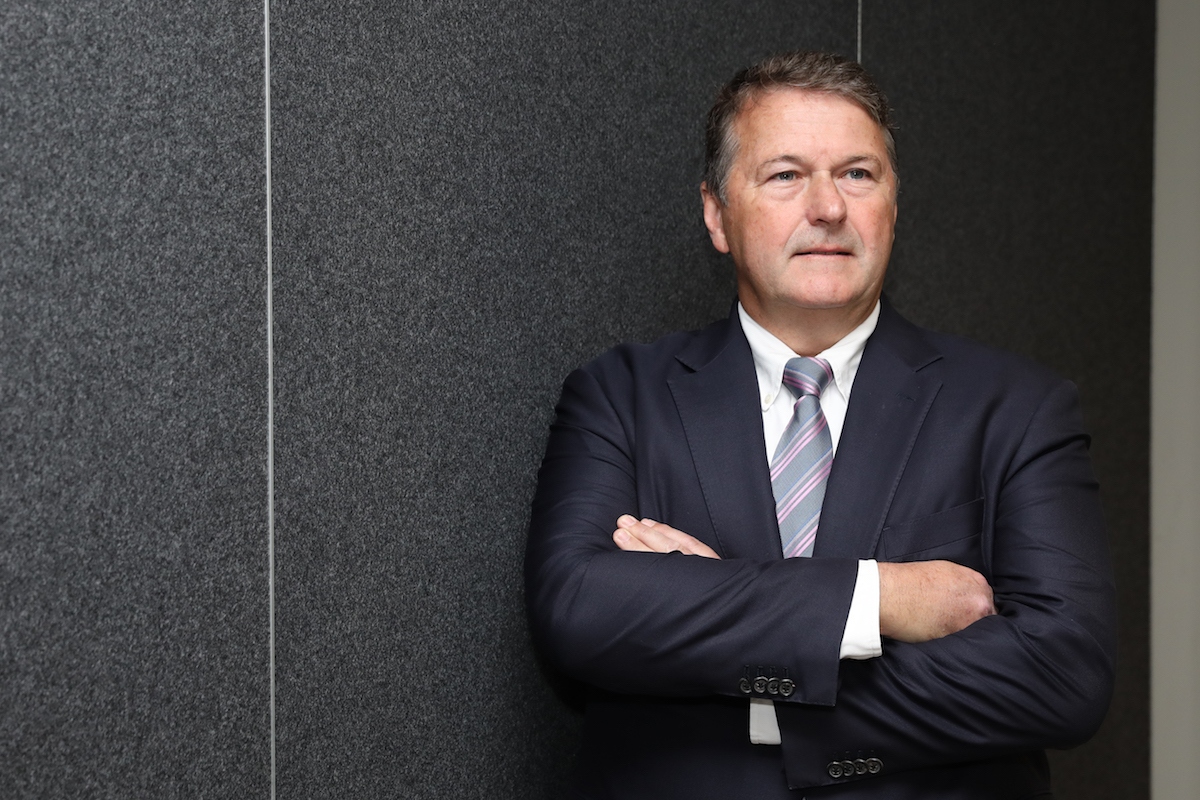
“Our clients like the fact that real estate can deliver long-term leases and income streams that match their long-term liabilities in super funds or insurance companies. The synergistic investment for a super fund would be in real estate, both listed and unlisted. We have seen a global increase in the proportion of pension fund balances being invested in real assets. This has doubled in the past 20 years, and I see these allocations continuing to rise, so we’re constantly on the lookout for those sorts of opportunities.”
It’s not just the feeling of growing a business that keeps David engaged, however, as he emphasises just how much he enjoys connecting with his fellow property buffs and clients, and working as part of a larger team. “What I love most about my work are the personal relationships that I’ve developed with our people and clients over those years. It’s the evolution of building a team and forging long-term relationships that motivates me to continue what I do,” he says.
It’s this people focus and a good understanding of the psychology of his clients and partners that has seen David continually attract strong equity sources throughout all economic cycles. After his appointment to the Group CEO role, his fellow executives at Charter Hall said that David had been instrumental in improving the financials of the business by driving a customer-focused approach while maintaining a strong partnership approach, thanks to his ability to match investor appetites with quality investment products.
“If you just listen to your client and understand what their appetite is rather than promoting a particular product, that’s a very big differentiator,” says David. “Most managers of any asset class create a product and then go out and try to sell it. I prefer to think of us as having a very strong origination capability – not just finding assets to develop or acquire, but also implementing strategies that are in line with what clients are looking for and what they’re trying to achieve.”
If you just listen to your client and understand what their appetite is rather than promoting a particular product, that’s a very big differentiator.
David’s passion for people has also seen him champion positive change within the business, as well as within the wider community, with Charter Hall home to a diverse and highly engaged team. “We’ve attracted some fantastic talent over the years. Because of our history of measured growth, I think that we are seen as a dynamic, agile and exciting place to work,” says David.
Leading from the top
For Charter Hall, the senior leadership team holds responsibility for demonstrating the behaviours and attitudes that shape the business and how it wishes to be perceived both internally and externally – whether it’s to do with ethical dealings and giving back to the community, building and maintaining employee engagement, or forming a diverse workforce.
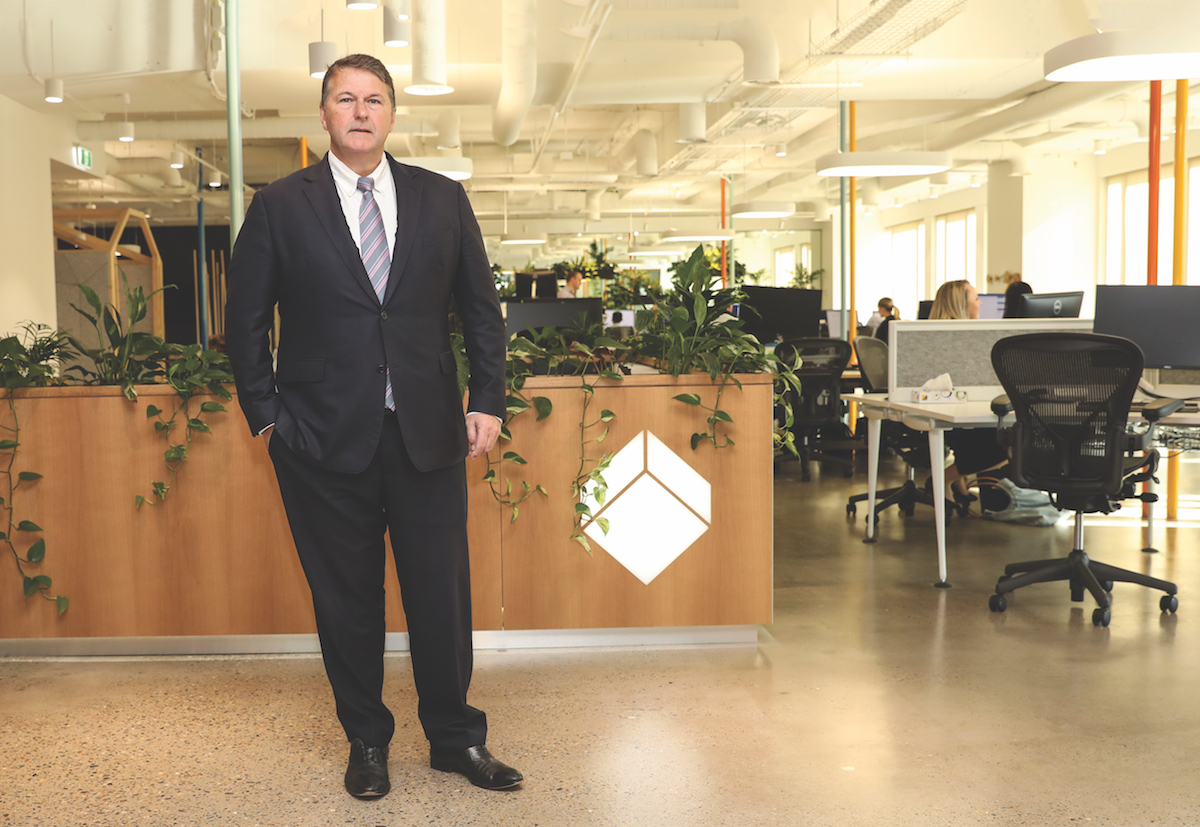
“I don’t expect any of my people to do what I don’t do myself,” says David. A member of Property Male Champions of Change, David regularly considers different approaches that might attract further diversity and what that might mean for the company. “Of course it’s important to always focus on instilling diversity across the business, but I think it’s a mistake to think diversity is all about the personal side of things,” says David.
“If you look at high-performing teams, there is usually a combination of different professional backgrounds as well. Diversity also comes from bringing in people who are specialists from different sectors or companies.” This mindset has seen Charter Hall attract executives from the infrastructure industry, as well as senior employees from the FMCG sector. “I think this is one of the reasons we’ve got strong longevity in our senior ranks, with many of the original executives from our relatively small team when we first listed in 2005 still with us.”
As the boss, David describes his approach to leadership with words like ‘dispersed’, ‘assertive’ and ‘collaborative’. “You can’t grow two small businesses into large businesses without having a dispersed leadership approach. Committees don’t run companies; decision makers do. So you need a good blend of multifaceted, collaborative leadership, but with a firm focus on outcomes and direction. I think that’s what we’ve managed to do,” he says.
“I think there’s a huge divergence in leadership styles. There are probably entire forests that have been demolished for the books that have been written on different leadership styles, but my view is you can’t copy; you’ve got to develop your own style based on your skill sets, which comes from having self-awareness of what you’re strong at and what you’re not.”
Life lessons
Aside from developing his leadership style on the job, David has also had a few influences from his personal life. These lessons have translated well into the workplace, including his long-time involvement with rugby. Starting in the game as a schoolboy, David played rugby through his high school and university years before graduating to club rugby. Today he plays with a New South Wales over-45s Masters team, which sees David and his teammates take an international trip every year, with tournaments in Hawaii, Italy, New Zealand and the US.
“We’re headed to Aspen, Colorado, for this year’s competition, and unfortunately you have to play about four or five games in four days. At this stage, our average age is about 52, so it can take a little while to recover,” laughs David. “But the camaraderie you develop, and a lot of the core values you get from team sport like this, are the same as you’d expect to see in a business, like loyalty, teamwork, focus, and communication.”
Last, David attributes some of his real-life leadership lessons to his parents who, in running their own business, demonstrated confidence and creativity in their work. “Though at a young age I didn’t see the depth of their approach, I did see the outcomes of what my mum and dad were doing. I recall their vision and focus, and having the confidence to deliver on that, like when they took swampland and turned it into high-quality canal subdivisions,” says David.
“While working with them over the school holidays, my siblings and I would see how they pursued their projects and goals. Certainly, our family upbringing was one of encouraging us to have audacious goals and the confidence to achieve them, and I think that’s what I’ve done with the growth of two businesses.”

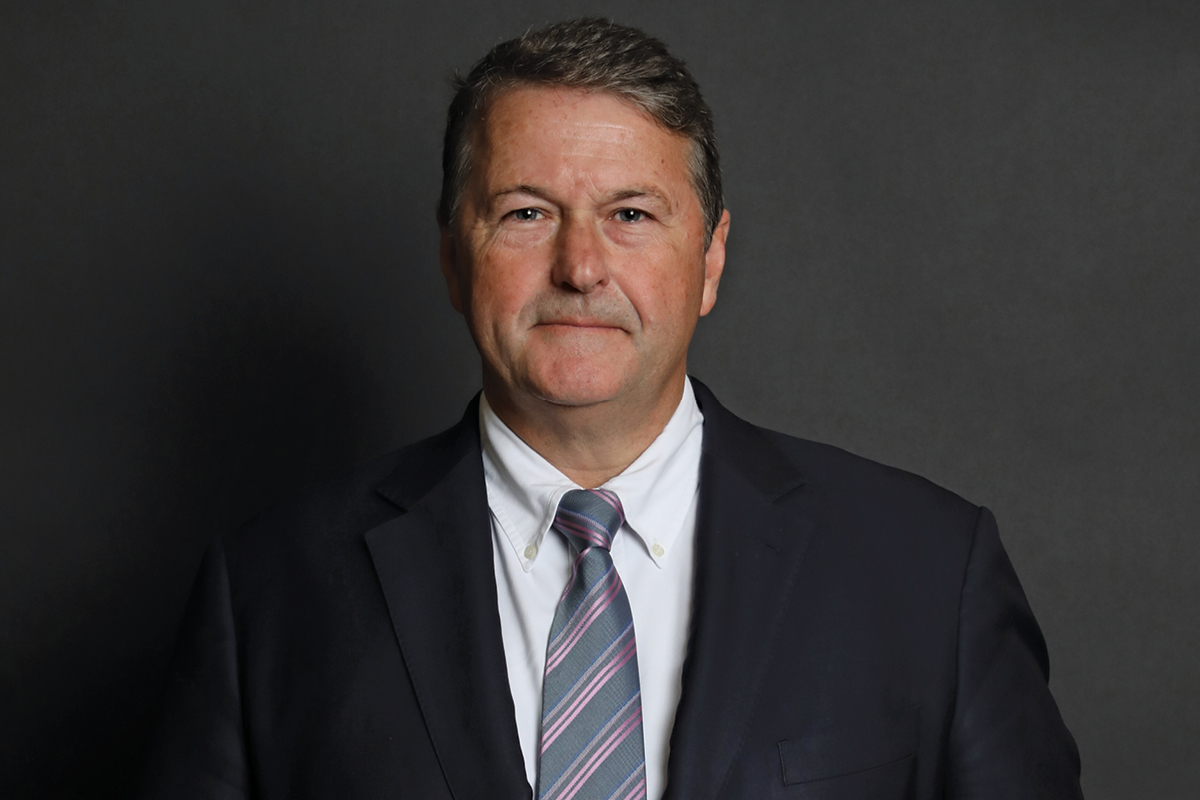
I enjoyed reading David’s story and in particular that he gave a lot of credit to his mum and dad for their moral compass. Also his sensible views about diversity, and sport as an exemplar for business teams.
WRT unlisted property trusts, I find it interesting that I seem to be alone amongst my colleagues/friends who are investors in seeing UPTs as worth having a high proportion in a portfolio. Most folk I know don’t seem to think past listed/unlisted share trusts and direct shares, or terms deposits. Admittedly UPTs don’t always bring home the bacon – an example being Charter Hall’s 144 Stirling Street, Perth where the investors like me lost 20% of their capital in just 4 years.
Regards
Peter Farr, Perth WA